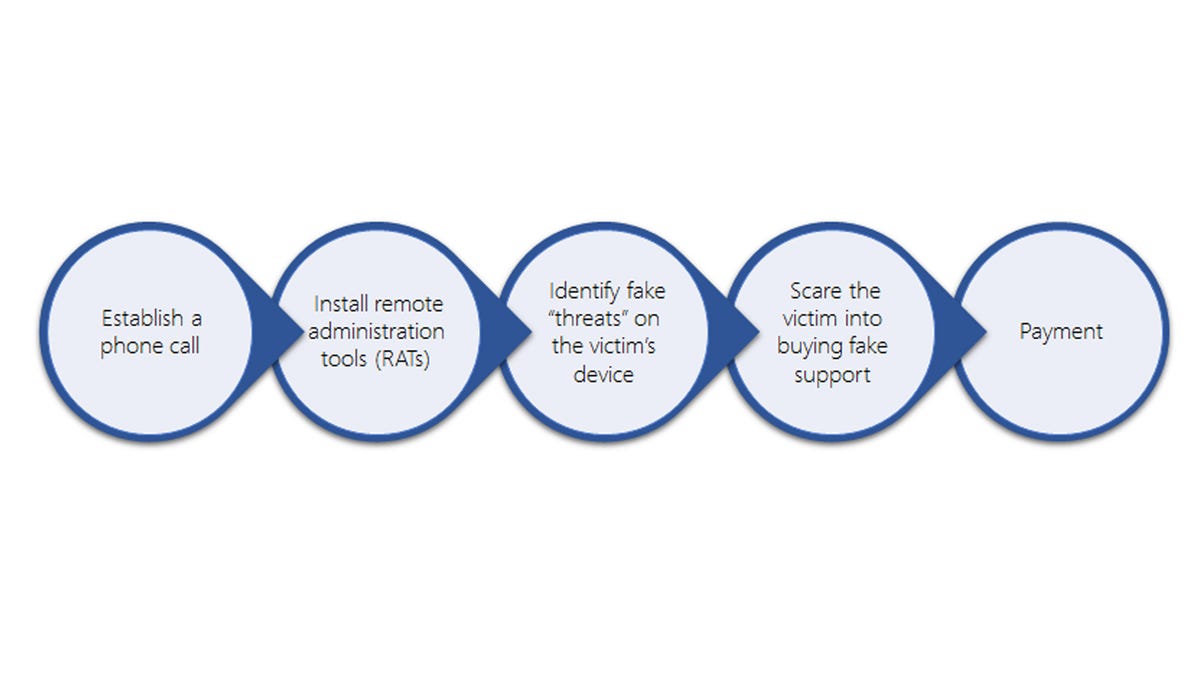Microsoft: Tech support scams a 'growing global problem'
Social engineering attacks such as fake tech support calls are easy, effective and occur across all platforms.

Tech support scams have a common attack plan.
Tech support scams by email, fake websites and error warnings, malware and unsolicited phone calls are an effective way to trick people into giving up personal information. And it's only getting worse, ZDNet reports.
In 2017, Microsoft customer support services received 153,000 reports from customers in 183 countries who ran into or were victims of tech support scams. That's up 24 percent from 2016, according to Microsoft Windows Defender Research Project Manager Erik Wahlstrom.
Approximately 15 percent of these customers lost on average between $200 and $400 in the scams, Wahlstrom said. Last December, scammers tricked people into paying $25 for fake security software. In the same month, Microsoft received a report of a tech-support scam in the Netherlands that resulted in the emptying of 89,000 euros (about $109,000, £78,000 and AU$143,000) from a bank account.
The problem isn't limited to Windows' users, with scammers attacking Mac OS, iOS and Android users as well. To that end, Microsoft has made partnerships in all areas -- law enforcement, telecom, web hosting and financial networks -- to take on the problem. But customer education remains key, Wahlstrom said.

